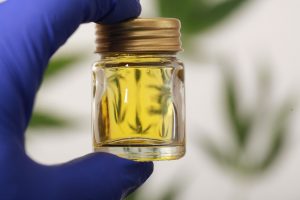
(This story has been updated from an earlier version to correct Jenn Michelle Pedini’s name.)
Far from the bustling marijuana dispensaries in Las Vegas and California, rural and politically conservative states with limited cannabis laws are loosening restrictions that once had marijuana entrepreneurs writing them off as infertile territory.
“Progress is being made in places you’d never have thought possible,” said Keith Stroup, founder of NORML.
Consider:
- Virginia’s governor recently signed a dramatic expansion of the state’s low-THC medical marijuana registry, removing any list of qualifying conditions for the drug and allowing it for any ailment for which a physician recommends cannabis. The expansion comes a year after Virginia amended its low-THC medical marijuana law to allow cultivation and sales, with five producers to be named this spring.
- Iowa is reviewing 21 applications for proposed dispensaries selling low-THC marijuana, with five stores slated to be approved next month. Iowa approved the state’s first cultivator late last year.
- Indiana lawmakers have passed a bill to expand CBD access from patients with certain kinds of epilepsy to all adults. The measure awaits the governor’s signature.
- Louisiana passed a 2016 medical marijuana law so restrictive that cannabis reformers wrote it off as unworkable. Still, the Louisiana Pharmacy Board received applications this year for all 10 available cannabis sales slots and is expected to start issuing those licenses this spring, with the first cannabis pharmacy aiming for a Sept. 1 opening.
- In 2016, Alabama loosened its 2014 CBD law that allowed the state’s flagship medical school, the University of Alabama-Birmingham (UAB), to study CBD for certain kinds of epilepsy. Now patients may possess CBD for any condition for which the drug offers “therapeutic or palliative relief,” and the state no longer requires physicians to have a UAB affiliation to recommend cannabidiol.
- A committee in the Utah House has approved a bill to allow pharmacies to sell CBD products produced under state supervision, a first step toward regulated cannabidiol production. The bill has the backing of the Utah Medical Association and the state’s Department of Agriculture.
The changes may be small steps toward full-fledged marijuana legalization.
Advocates encouraged
But to activists like Jenn Michelle Pedini, executive director of Virginia’s NORML chapter, they represent an overlooked trend in the cannabis industry – changes are happening where locals once seemed hostile to the plant.
Two years later, Virginia cracked open the door for low-THC cannabis production. And by 2018, bills to remove any qualifying conditions for CBD passed unanimously in both the House and Senate.
“This legislation is landmark in that it sets the tone for states that set hyper-restrictive models” for medical cannabis, Pedini said.
Up next in Virginia: lobbying to raise or remove THC limits and to allow edible marijuana consumption.
Many states like Virginia prefer a go-slow approach to cannabis, Pedini said, but marijuana opportunities can emerge if activists keep up the pressure even after national drug-policy groups write their states off as hopeless.
“You have to do the work yourself if you want to see change,” said Pedini, who rallied patients with conditions beyond intractable epilepsy to keep reappearing in Richmond to lobby Virginia politicians.
“We’ve been trying for years, and we’ve been met with more pushback. But it was just getting in front of our Legislature letting them know what patients need,” Pedini said.
Morgan Fox, spokesman for the Marijuana Policy Project, conceded that national drug reformers spend their money in states most likely to change drug policies.
“It really depends on our potential for future progress in those states,” Fox said.
“If it appears we have hit a roadblock, we may focus resources elsewhere and look for opportunities to advance.”
Some states more receptive
Indeed, the curve of marijuana opportunities remains much steeper in some states than others.
Even as some states with limited CBD laws are loosening restrictions, other states have signaled that they’re not ready to consider allowing the drug.
- Idaho lawmakers are concluding work for the year with dim prospects for CBD allowances. A bill to allow limited CBD possession passed the GOP Idaho House but stalled in the Senate after the governor expressed opposition. Otter vetoed a similar bill in 2015.
- Indiana punted on a bill to allow hemp production, deciding to study hemp instead of allowing it, even as the bill expanding CBD access awaits the governor’s pen.
Fox maintained that MPP doesn’t generally favor restrictive CBD-only laws.
“It’s a way for politicians to get their pictures taken with sick kids,” he said.
“It’s really just a placeholder for real policy reform.”
But Fox applauded Virginia’s efforts and said he hopes to see a thaw in more states that have given marijuana an icy reception.
“It’s definitely a positive development,” Fox said of Virginia’s law. “If the landscape demands a slow incremental approach, then that’s the approach to take.
“It’s important that patients are able to access the whole plant. That doesn’t mean they should only push for perfect bills that may not be politically feasible.”
Kristen Nichols can be reached at kristenn@mjbizdaily.com

